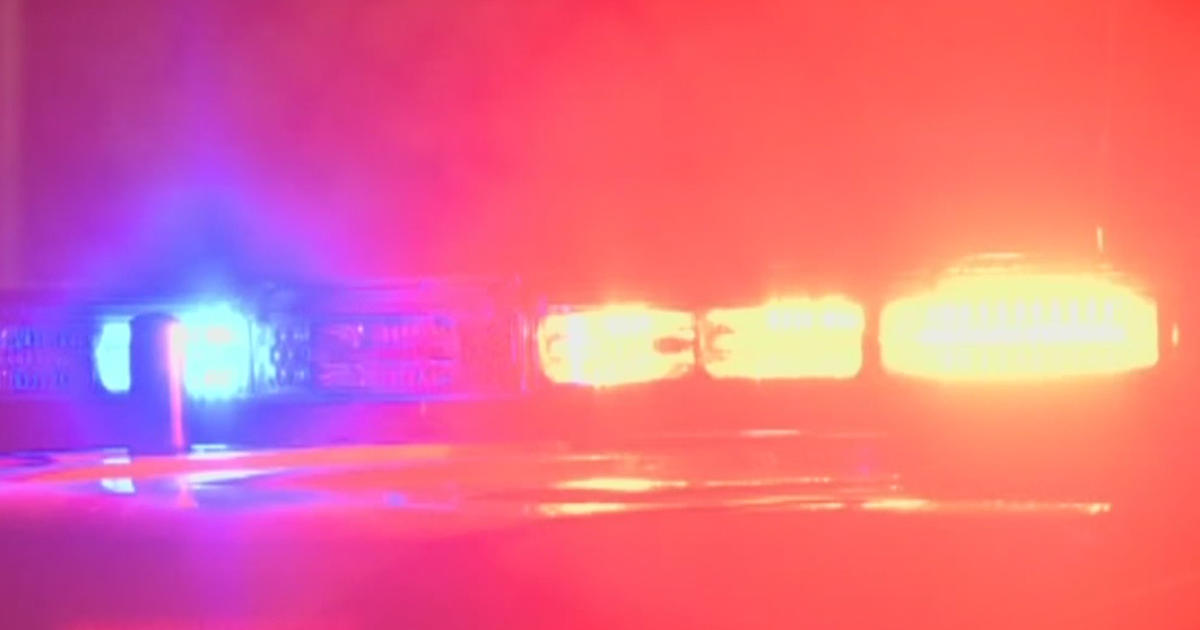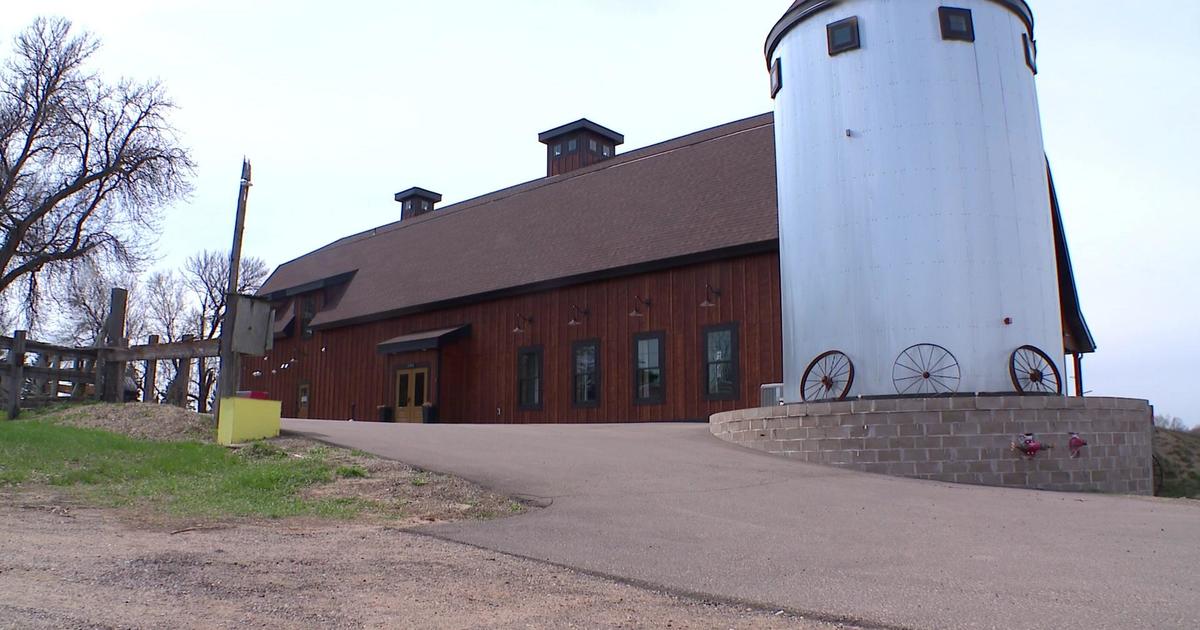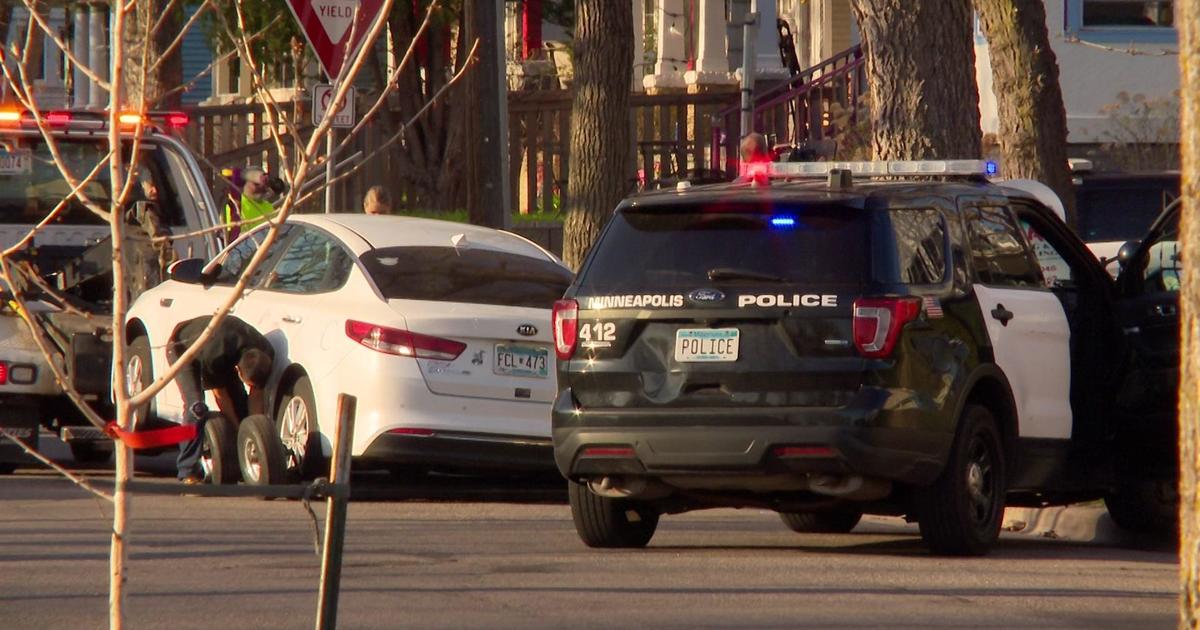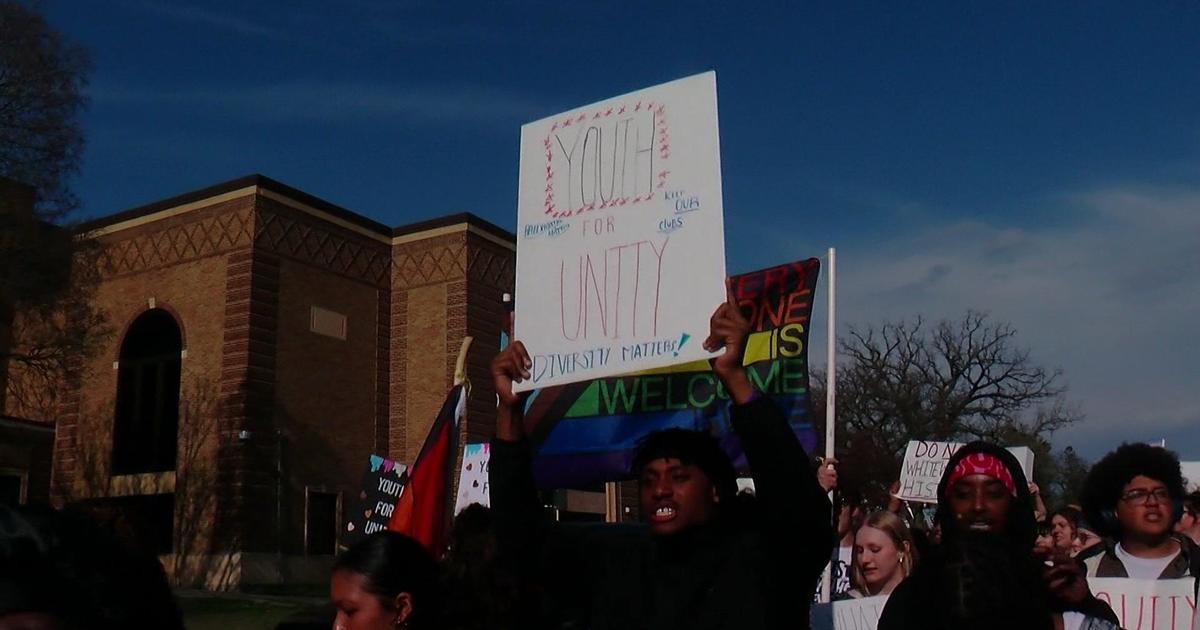Derek Chauvin Trial, April 9 Live Updates: Hennepin Co. Medical Examiner Dr. Baker Takes The Stand
UPDATE (3:50 p.m.): Dr. Andrew Baker tells defense that he avoided videos before George Floyd's autopsy to avoid bias. He says he did get some basic info from BCA, including that Floyd may have had pressure on his neck.
Defense asks Baker if he agrees there's nothing inherently wrong with the prone position. Baker agrees.
Baker says there's many types of asphyxia and is very common cause of death in his line of work.
Baker said he believes that Derek Chauvin's knee was compressing George Floyd's neck. He didn't find bruises on George Floyd's neck or back.
Defense begins asking Baker about the toxicology reports and conversations Baker had with the Hennepin County Attorney's Office. Despite fentanyl and methamphetamine levels in Floyd's system, Baker said it did not directly cause Floyd's death.
State asks if Baker's cause of death for Floyd has changed. Baker said it has not.
Baker adds that he classifies the manner of George Floyd's death as homicide. No further questions from Blackwell. Baker is excused from the stand.
Following a 15-minute break, Cahill returns and tells the jury that, since that the prosecution intends to call one more medical expert to the stand and that would take court well past 5 p.m., all parties decided to hold off calling that witness to the stand until Monday morning.
The pool reporter noted that the jury seemed surprised, but grateful at the announcement, with some notably smiling from behind their masks. The reporter also noted that as Chauvin walked out, he and prosecutor Jerry Blackwell made eye contact. "Have a nice weekend," Blackwell said to him. Chauvin nodded his head.
Court proceedings close just shy of 4 p.m.
UPDATE (2:30 p.m.): Dr. Andrew Baker takes the state through George Floyd's cause of death: "cardiopulmonary arrest complicating law enforcement subdual, restraint, and neck compression."
He says the "law enforcement subdual, restrain and neck compression" was too much for Floyd's heart to take, considering Floyd's heart conditions.
Of fentanyl and methamphetamine levels found in Floyd's system, Baker says it played a role in the death, but wasn't the direct cause, which is why it is not listed in the top line of the cause of death.
Defense begins cross-examination.
UPDATE (2:15 p.m.): Dr. Baker says a lot of fluid was found in George Floyd's lungs, says he sees that in protracted CPR. Otherwise, looked like normal post-mortem lungs.
State asks Dr. Baker if he found anything resembling pills or pill fragments in George Floyd's stomach, Baker said "I did not."
UPDATE (1:30 p.m.): Testimony in the Derek Chauvin trial continues with Dr. Andrew Baker — the Hennepin Co. Medical Examiner who performed the initial autopsy of George Floyd — taking the stand.
Baker takes the state through his background prior to coming to the Hennepin County Medical Examiner's Office.
He begins telling state how he initially heard of George Floyd death, says he avoided any videos before the autopsy of George Floyd.
Baker says a medical examiner is supposed to take "copious" amounts of photos, so much that other pathologists examining the work would feel like they are there, and not need to take Baker's word for it. Says he did that for George Floyd.
The medical examiner then described pictures taken of various areas of damage on George Floyd's body.
Baker said Floyd had no previous damage to Floyd's heart muscle: "He had no visible or microscopic damage to his heart muscle." He continued to describe how medical examiners dissect and analyze the heart.
UPDATE (12:25 p.m.): Eric Nelson, Derek Chauvin's attorney, cross examined Dr. Lindsey Thomas, a forensic pathologist who testified earlier Friday that she believed, after examining the available evidence, that George Floyd died due to lack of oxygen.
Nelson asked about Floyd's heart, the dangers of the prone position, and drug use. The doctor agreed that Floyd had a "slightly enlarged heart," with a restricted right coronary artery, and a history of high blood pressure. She also agreed that lying in the prone position alone is not dangerous, "not if there are no other factors."
On drugs, Nelson asked if methamphetamine could increase the body's heart rate. Thomas agreed that it could. In a hypothetical question, Nelson asked the doctor to consider if someone had the same levels of drugs in their system as Floyd had, with no other variables. In such a case, would she rule the death an overdose? "In the absence of any other realities, yes, I would consider that to be an overdose," Thomas said.
In redirect, prosecutor Jerry Blackwell attacked that hypothetical. In his initial response, Blackwell described the question to be like asking Mrs. Lincoln if John Wilkes Booth wasn't there if the president would have died. Nelson objected to the framing, and Judge Peter Cahill ruled it argumentative.
Blackwell rephrased the question, asking the doctor if she'd ever assess someone's manner and cause of death by removing facts that were central to the case. Thomas responded that she wouldn't.
Blackwell also asked if Floyd showed any signs of fentanyl intoxication during his arrest. Thomas said no.
The court is currently on lunch break until 1:30 p.m. It's expected that Hennepin County Medical Examiner Andrew Baker, who performed the initial autopsy on Floyd, will testify in the afternoon.
UPDATE (11:16 a.m.): Notes from the two court reporters detail what happened Friday morning concerning an off-video hearing with a juror.
The reporters say that Judge Peter Cahill questioned one of the jurors, a white woman in her 40s or 50s, about her receiving a text from her mother-in-law. The juror told the court that she received a text saying it "looked like a bad day."
The judge responded by asking if the woman was working on a "book deal." It was not clear whether or not he was joking. The juror responded by saying that she didn't know what to expect from the trial.
The juror also reported that she briefly saw an outside attorney discussing the case on TV. She said she turned off the TV as soon as she noticed the courtroom.
The judge concluded that the juror did not engage in inappropriate conduct and is still fit to serve.
UPDATE (10:44 a.m.): When prosecutor Jerry Blackwell asked Dr. Lindsey Thomas, a forensic pathologist, if she believed George Floyd would have died on May 25 if he had not encountered Minneapolis police, she said that there's "no evidence to suggest he would have died that night expect from interactions with law enforcement."
The doctor, who has performed hundreds of autopsies, testified that Floyd's primary mechanism of death was "low oxygen" and his secondary mechanism of death was physiologic stress. "Ultimately, the cause of death is physical restraint and compression," she said, adding that the video evidence showing former officer Derek Chauvin kneeling on Floyd's neck informed her analysis.
While she did not perform the initial autopsy on Floyd, she agreed with its conclusion on his manner of death: homicide.
During her testimony, packets with autopsy photographs were handed to jurors for the first time. The autopsy photos of Floyd's body were not broadcast on the court feed. According to one of the court reporters, the packets contained five images, showing close-ups of Floyd's his face, shoulders and hands.
Using the photographs, Thomas explained to the jurors that the scrapes on Floyd's shoulders and knuckles were consistent with the body-worn camera video that showed him struggling to breathe while being restrained by officers.
UPDATE (9:52 a.m.): The first person to take the stand Friday was Dr. Lindsey Thomas, a forensic pathologist. She was the head of the Minnesota Regional Medical Examiner's Office for 13 years, and she also worked "for many years" at the Hennepin County Medical Examiner's Office.
Thomas told the court that she's personally conducted about 5,000 autopsies and helped or oversaw hundreds, if not thousands, more. The doctor said she worked with the current Hennepin County Medical Examiner, Dr. Andrew Baker, who performed the autopsy on George Floyd. Thomas testified that she had not spoken to him about the case.
When asked if she agreed with Baker's cause of death for Floyd, Thomas said yes. Last year, Baker listed Floyd's cause of death as "cardiopulmonary arrest complicating law enforcement subdual, restraint and neck compression."
In her analysis of Floyd's death, Thomas testified that he died because he was restrained in a position that made it impossible for him to get sufficient air into his lungs. This echoes what a lung and breathing expert told the court on Thursday, explaining that Floyd died of a "low level of oxygen."
MINNEAPOLIS (WCCO) -- Friday will mark the 10th day of testimony in the Derek Chauvin trial, and the medical examiner who performed the initial autopsy on George Floyd is expected to take the stand. His findings are key to both sides in the case, as the central argument is over Floyd's cause of death: whether it was because of Chauvin's pinning him under his knee for nearly 10 minutes or underlying health conditions and a drug overdose.
The state intends to call Hennepin County Medical Examiner Dr. Andrew Baker to testify. Last summer, his autopsy found that Floyd "became unresponsive while being restrained by law enforcement officers." The cause of death was listed as homicide due "cardiopulmonary arrest complicating law enforcement subdual, restraint and neck compression."
The report noted that Floyd had hypertensive heart disease, fentanyl intoxication, and recent use of methamphetamine and cannabis. Additionally, the report said that Floyd tested positive for COVID-19 early last April.
RELATED: As They Prepare For Autopsy Photos In Court, George Floyd Family Offers Public Prayer
Defense attorney Joe Tamburino, who is not affiliated with the case, says that Baker is a preeminent expert in his field, describing him as a person with "impeccable credentials."
"We want to hear what he has to say about his autopsy," Tamburino said. "He examined the body, he examined the trachea, he did all those things. So, we're going to be very interested to hear what he has to say about the fentanyl level and the actual physicalities of George Floyd's body."
Tamburino will be giving legal analysis Friday during WCCO-TV's gavel-to-gavel coverage of the trial, which is being streamed on CBSN Minnesota. Each day of the trial, Jason DeRusha is leading coverage, and Tamburino is providing legal commentary. Court is expected to resume Friday around 9:15 a.m.
RELATED: Watch Full Coverage Of The Derek Chauvin Trial
Over the course of the trial, prosecutors have argued that Floyd died on May 25 because Chauvin, a former Minneapolis police officer, knelt on his neck for 9 minutes and 29 seconds as Floyd was lying prone and handcuffed outside of Cup Foods, the south Minneapolis convenience store where he allegedly tried to pass a phony $20 bill.
Chauvin is facing charges of second-degree murder, third-degree murder and manslaughter. Three other former officers are charged with aiding and abetting Chauvin; their trial is set for August.
On Thursday, medical experts testified on the cause of Floyd's death. The bulk of the testimony was taken up by Dr. Martin Tobin, a nationally-renowned lung and breathing expert based in Chicago. Tobin described to the jury in precise detail, using slides, animations and computer renderings, that Floyd died of a "low level of oxygen."
Tobin's analysis showed the court that Floyd was using his fingers and knuckles to push against the pavement and the squad SUV tire in his struggle to breathe. The doctor showed slow-motion footage of the exact moment where he believed the "life goes out of his body," as seen in the bystander video that sparked unrest in the Twin Cities last summer and a national reckoning on racial inequity.
RELATED: Lung Expert Counters Defense's Claims That Drugs, Poor Health Killed George Floyd
Knowing that the defense is trying to argue that Floyd died of a drug overdose, Tobin dismantled the idea that Floyd was showing signs of fentanyl intoxication. During his hours-long testimony, Tobin noted that Floyd's respiration rate was normal during the arrest, explaining that it would have been significantly lower had Floyd ingested a significant amount of fentanyl.
Dr. Bill Smock, a surgeon and forensic expert from Louisville, Kentucky, also testified Thursday. Like Tobin, he dismissed the idea that Floyd died of an overdose.
Smock explained: "From pressure on his chest and back, [Floyd] gradually succumbed to lower and lower levels of oxygen until it was gone and he died."



